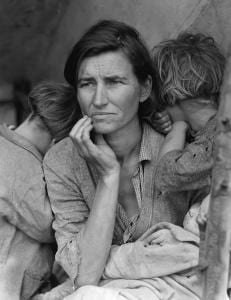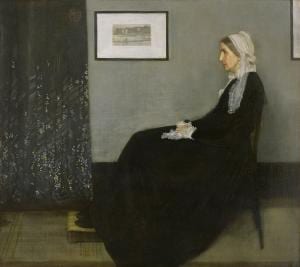 Some of my most painful memories of Christian worship have occurred around that monumental secular holiday, Mother’s Day. More than I ever wanted, I have heard preachers, usually male ones, extoll the power of motherhood, saying in so many ill- chosen words that “the hand the rocks the cradle rules the world.” On one occasion, I sat in a pew with seven women, not a single one of whom was a biological mother. Some of those women wished they were mothers; some were glad that they were not. I knew each of these women well, so knew something of their stories and wondered just who it was the preacher was speaking to. Then there was the time when the preacher forced the “mother with the highest number of children” to stand, after the other mothers in the congregation had been vanquished by this especially fruitful woman, each in turn sitting down to gaze at the “winner” with envy? Sorrow? Pity? Who could tell? I hoped that the trump would sound at that moment, and we all would be called to meet the Lord in the air! Mother’s Days have offered some truly horrendous worshipping experiences.
Some of my most painful memories of Christian worship have occurred around that monumental secular holiday, Mother’s Day. More than I ever wanted, I have heard preachers, usually male ones, extoll the power of motherhood, saying in so many ill- chosen words that “the hand the rocks the cradle rules the world.” On one occasion, I sat in a pew with seven women, not a single one of whom was a biological mother. Some of those women wished they were mothers; some were glad that they were not. I knew each of these women well, so knew something of their stories and wondered just who it was the preacher was speaking to. Then there was the time when the preacher forced the “mother with the highest number of children” to stand, after the other mothers in the congregation had been vanquished by this especially fruitful woman, each in turn sitting down to gaze at the “winner” with envy? Sorrow? Pity? Who could tell? I hoped that the trump would sound at that moment, and we all would be called to meet the Lord in the air! Mother’s Days have offered some truly horrendous worshipping experiences.
The Bible is, of course, replete with mothers. Let’s recall a few. Eve, a distant English translation of the Hebrew chawah, was a mother all right, in fact the very first mother, as the story goes. One can only imagine just how painful it was for her to witness one of her two sons murder the other. It might be that the first historical mother mentioned was Deborah, named a “mother in Israel” (Jud.5:7). We know she was married, though if she had children they are not noted in the text. However, we do know that she led the forces of Israel to a smashing victory over the heavily armed Canaanite general, Sisera, a defeat that sent him running to his grisly death at the hands of another woman, Jael, who bashed in his skull with a tent peg. And there was Bathsheba, one of the many wives of King David, who after the birth of her son, Solomon, schemed to make him king, though David’s first-born was Adonijah, son of Haggith. She claimed that her husband had promised Solomon would be his successor on the throne, though the story says nothing of that. It could very well be that Bathsheba, a protective mother indeed, dreamt up that idea to ensure that her son, not to mention herself, would be spared the potential bloodbath that kingship struggles too often create. Solomon became king, and Bathsheba survived as Queen mother, but there was a bloodbath anyway, as Solomon one after another eliminated all possible rivals (1 Kings 1-2).
Like Bathsheba, the very model of clever, protective mother, stopping at nothing to ensure the success of her child, there is the woman of Tekoa, who later in the David story, tricks the king, at the behest of his chief general Joab by telling a fictitious story about two of her sons, one of whom murdered his brother, a story told in order to force David to allow his banished son Absalom to return to Jerusalem following his murder of a brother (2 Samuel 14). And, of course, no Christian can ever forget the portrait of Jesus’s mother, Mary, standing at the foot of the terrible cross with “the disciple whom he loved,” traditionally thought to be John, the gospel writer. Hanging from his instrument of torture, Jesus says to Mary, “Woman, here is your son,” perhaps referring to himself or to the disciple. He then turns to the disciple and says to him, “Here is your mother.” These statements cause the disciple to take Mary into his own home from that time on (John 19:25-27). I could name many other biblical mothers, but these few will suffice to suggest that mothers come in many guises and fulfill many offices from suffering to cleverness to martial to even deeper sorrow.
Of course, this Mother’s Day, I think most often of two mothers, my own mother and my wife. Diana, my wife, is a superb mother in every way, fiercely protective of our two children, deeply devoted to the twists and turns of their now adult lives, always and forever concerned about how they are and who they may become, though both of them are now in their 40’s. Still, I admit that on this day, I think primarily of my own mother, Martha, who died, age 92, in 2011. Many imagine their mothers as especially amazing people, and I am hardly different. My mother lived a long life, a life that was never quite her own in certain ways, but in other ways demonstrated her uniqueness again and again.
She was an RN from a very early age, barely 20, and as a nurse she met my father in an Indianapolis hospital where he was a patient. They married in about six weeks after that meeting and stayed married until his death in 1988. He was not the most gifted of men, and surely not the most loving or caring. My mother worked very hard her whole life and bore the brunt of raising their four sons almost alone. Though she regularly worked the night shift at the hospital emergency room, she would leave work at 7:00AM, rush home to be sure we all ate breakfast and got off to school and work. Then, after a few hours sleep, she would clean the house, shop for groceries, cook the evening meal, clean the dishes, and wait to leave for her late shift at 11:00PM. I still do not understand how she operated with so little sleep.
After my father’s death, she learned that he had, unknown to her, taken out five credit cards and had maxed them to the limit in order to demonstrate a fictitious money making, something he clearly was not doing. Instead of cursing his name, as her sons urged her to do, she just got on with her life, paying off the credit cards as soon as she could, by working well into her 80’s as nurse and lastly as apartment salesperson, in order to secure a reduced cost on her own place of living. She died in a nursing facility in one room, having lived over her last years in increasingly smaller places. She never complained to us that life had dealt her a bad hand, except toward the end when she asked me again and again why she continued to live when so many she had known and loved had died. I performed her funeral myself, a great privilege for me. Without knowing, she taught me huge lessons, perhaps the greatest of which was that notion of “carrying on,” no matter what life offers. I well know that that can be a burden, and can insulate one from honest anger, but more times than I can count it has served me well in the midst of my own struggles.
She has been dead now for nearly 10 years, and I miss her spunk, her steadfast and powerful commitment to life, and her sparkling laugh. Happy Mother’s Day, Mom! You joined together in your life many of the very best traits of biblical motherhood: leadership, protectiveness, and persistent survival in sorrow. Thanks.
(Images from Wikimedia Commons)











